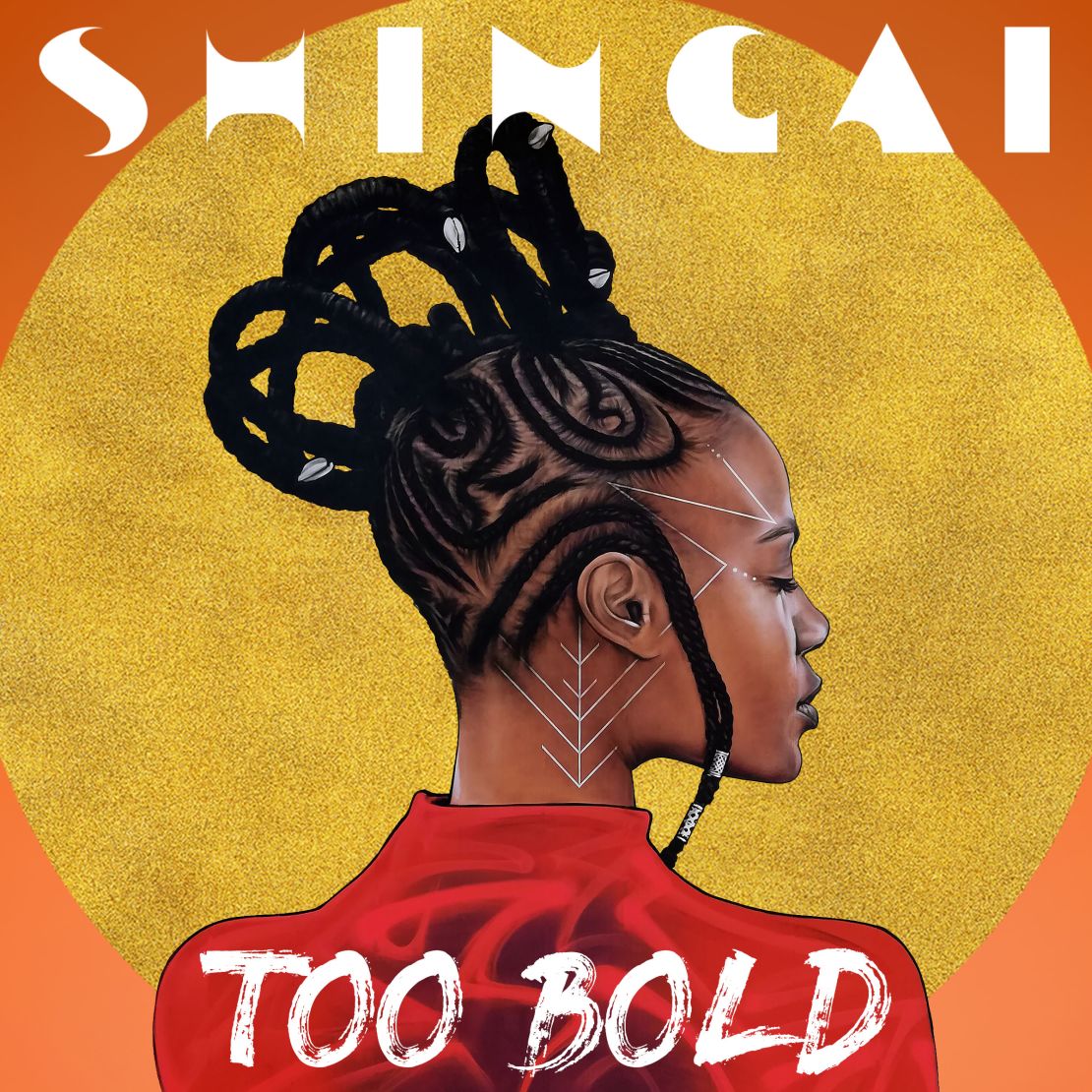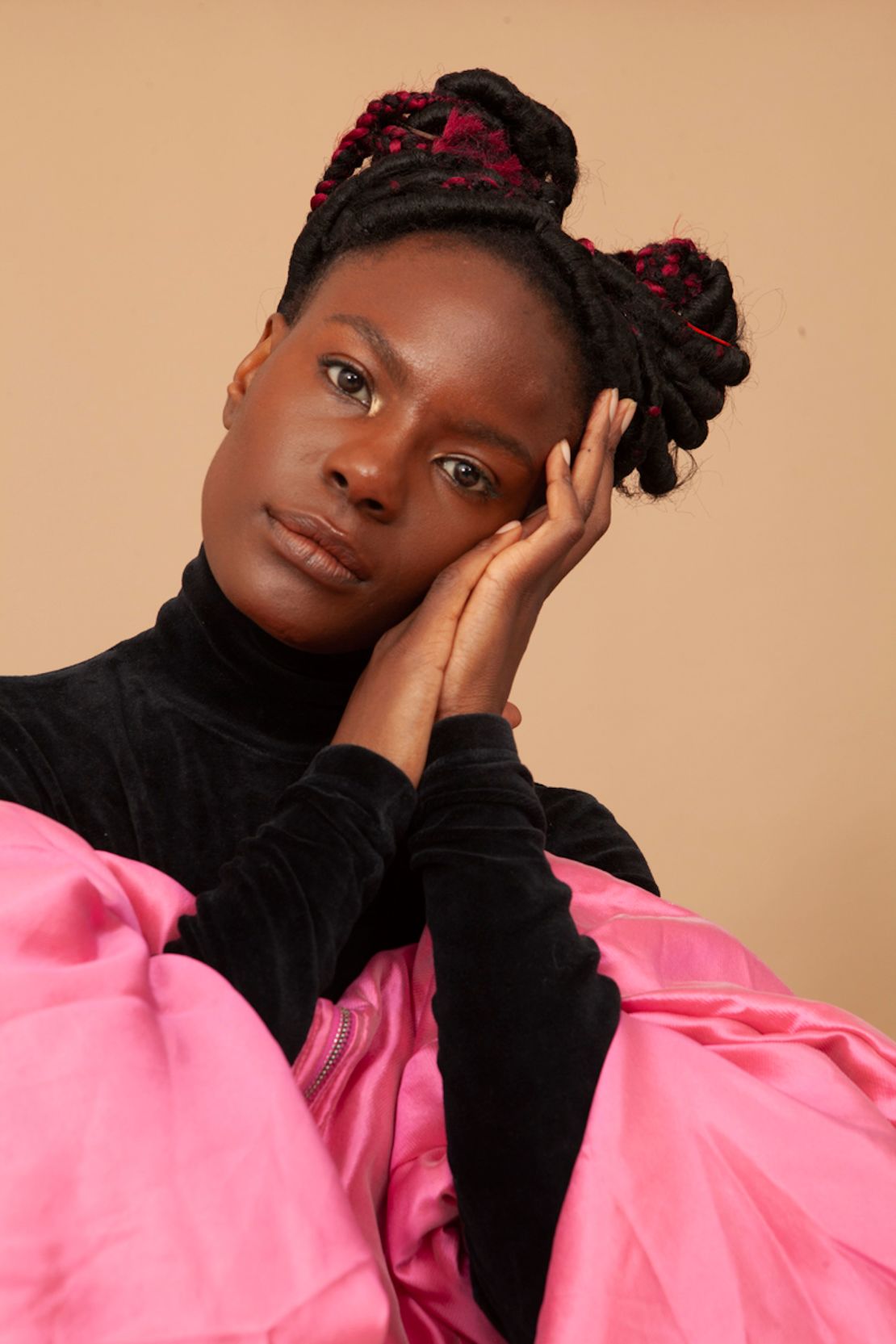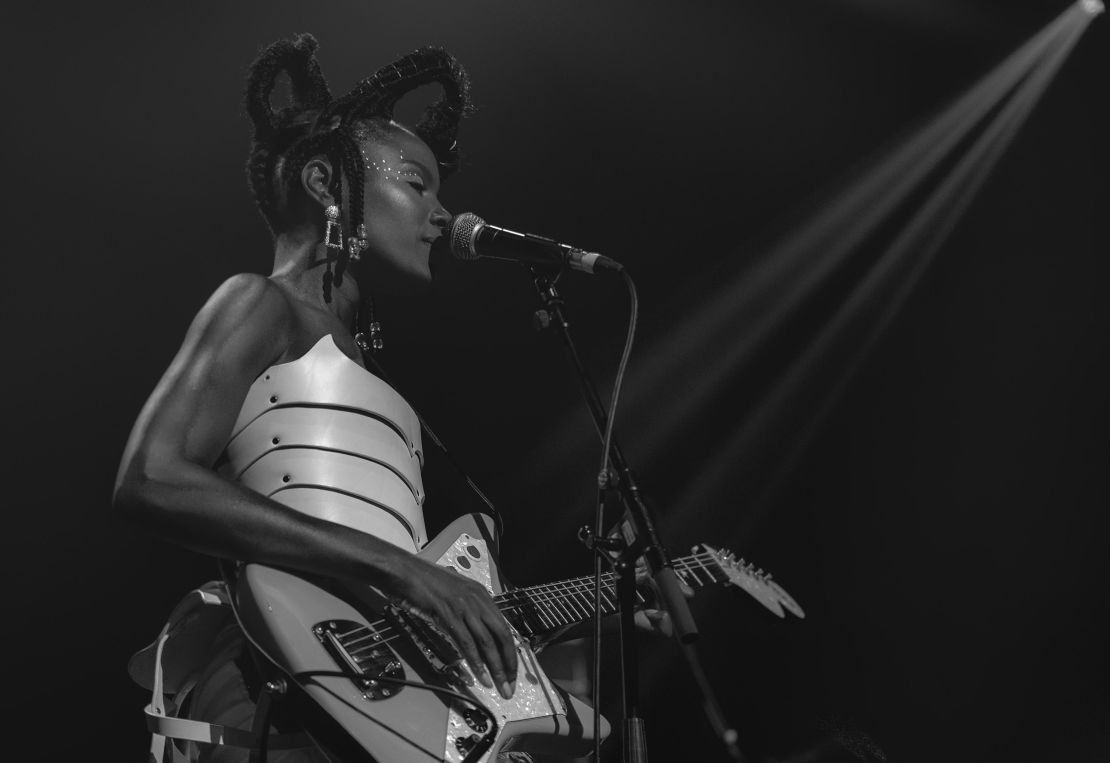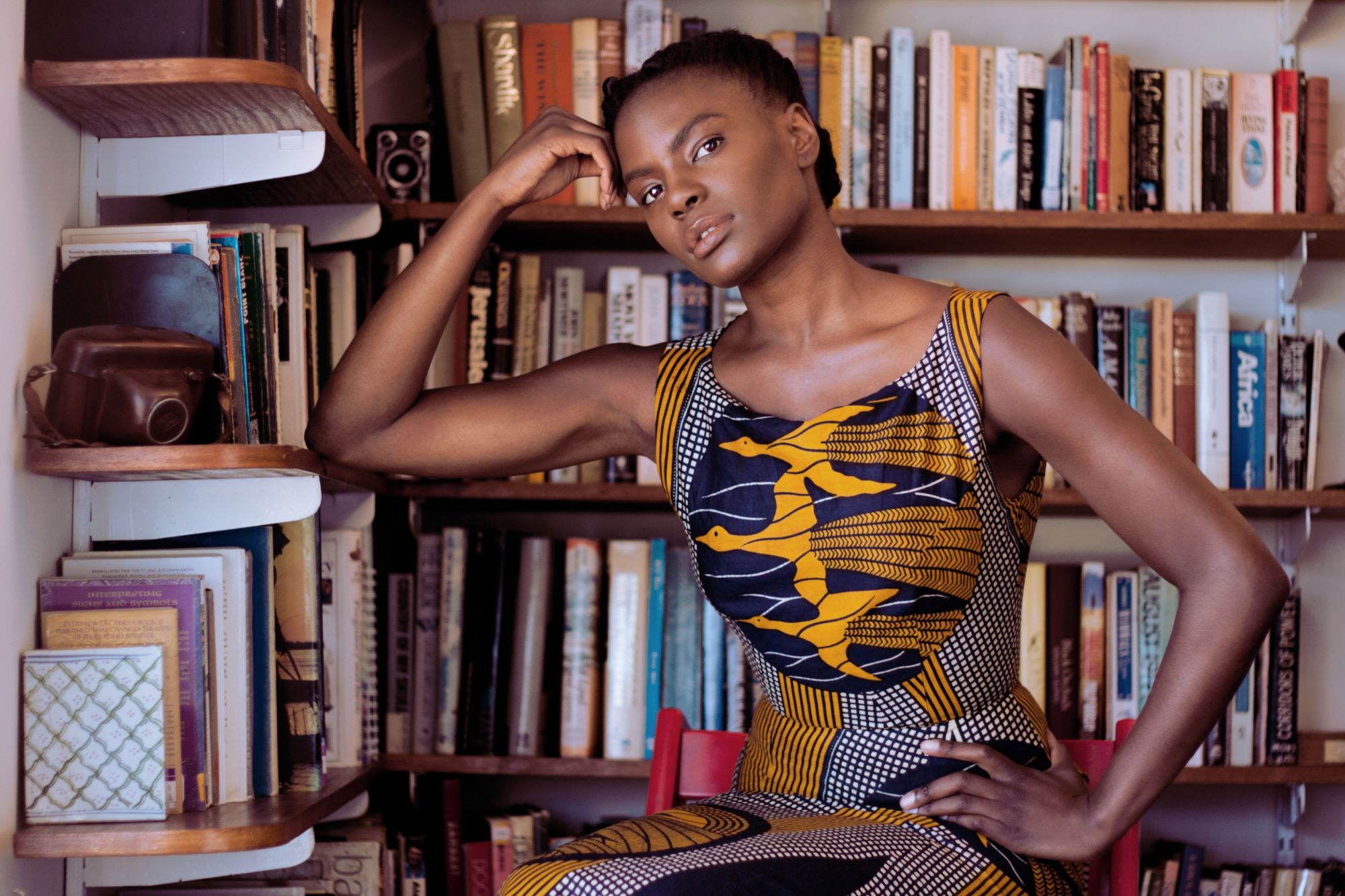Zimbabwean-British singer Shingai Shoniwa had her first real taste of fame in 2009 when indie soul band Noisettes released their sophomore album, “Wild Young Hearts,” propelling the group into the mainstream with UK top 10 hits, magazine covers and festival appearances from Coachella to Glastonbury.
Yet what the vocalist and bass player remembers now is being the outside bet for their major label. “I recall turning in the album artwork, which was me with a heart-shaped afro, and the marketing team telling me it wasn’t commercial enough,” she said in a phone interview. “Then we sold half a million records. They thought we were so controversial but that was us having to be considerate. Now I can just be free.”

Today, the musician is focused on her independent solo career as Shingai. Her new album “Too Bold” was released this week and, aptly for the first full length release, its title echoes her name (in Shona, a Bantu language, Shingai means “be bold, be brave, have courage”).
“This record is about using melodic harmony to find balance across all of my cultural reference points,” she said. “It’s half raw instrumentation – vibrations of the ancestors who are in my DNA – and half digital, futuristic sound.”
“I had to work really hard to get my spirit back”
Shoniwa’s first album has been a long time coming. No stranger to working on music beyond Noisettes – collaborators have ranged from rappers Baloji and RZA to disco king Giorgio Moroder to new wave icon Annie Lennox – she had planned to release her solo demo in 2016. But then the musician faced professional and personal challenges when a stalker hacked her social media accounts and assumed her identity, leading to a legal battle and his conviction. “It jeopardized everything. I wouldn’t wish what I went through on my worst enemy,” she said. “I had to work really hard to get my spirit back.”

By the beginning of 2019, Shoniwa had honed her material and was ready to shine. That spring, she established her own imprint Zimtron Records and released the “Ancient Futures” EP in June, which was a fully realized version of her initial demo.
Touching on dub, garage and synth pop as well as mbira-fueled chimurenga (a popular music genre associated with Zimbabwe’s fight for independence), the songs were an uplifting rallying cry to the African diaspora to embrace their culture and connect to home. And for her, the message was personal.
“There’s British Shingai who grew up in South London with all the energy of the concrete jungle. But I also feel like an old soul because of the Zimbabwean and Bantu heritage I have,” she said. “I’m a bit of a remix: one grandmother is from Malawi, another is from Mozambique, and both my parents were born in Zim (Zimbabwe).”
“‘Ancient Futures’ was a full circle moment,” she added. “As it came out, my shoulders dropped. Noisettes raised me but this was the blueprint. It was me finding my voice.”
Layered meanings
Lyrically, “Too Bold” goes beyond “Ancient Futures” to delve into socio-political territory. While its predecessor delivered messages about resilience, this time the gloves are off. “I’m trying to graduate from sneaking conscious messages into friendly, sexy music. I am not afraid to address darker themes and talk about the heightened state we’re all in.”

The first single “War Drums” refers to traditions across Africa of communicating between kingdoms through percussion ensembles, whether to warn of dangers or invite conflict. The song likens war drumming to today’s politicians who nonchalantly threaten weaker nations, but who may not have experienced conflict themselves. “My family have lived through (war),” she said. “My mum was a teenage prisoner of war in Zimbabwe in the late 1970s and her generation are still recovering. So don’t bang that drum if you don’t want it to backfire on you.”
Fittingly, the song opens with a field recording Shoniwa made in 2011 on a trip back to her grandmother’s village in Malawi. In it, her young cousins recite a welcome chant as she arrives at the home where she too lived for a brief time as a child. “It’s an honor to be received in this way,” she said. “It’s a celebration, and it makes such a beautiful contrast to the sentiments of these so-called civilized warmongers.”
Elsewhere on the album, “Take It Easy” addresses the uncomfortable fact that many of the West’s greatest cities were built on the spoils of slavery. “South London Safari” recalls adolescent memories of smoking in the park while “Echoes of You” ruminates on her first love. “It’s a dreamy, epic song about appreciating a relationship even when it’s over,” she said. Her latest single, “We Roll,” talks to a bygone best friend over hand claps and a jazzy saxophone.
To fully understand Shoniwa’s music though, is to see her live. Her theatrical performances often involve dangling elegantly from balconies, still strumming her bass, and dancing across stages in statement outfits by African designers such as Harare-based Haus of Stone.
During the UK’s Covid-19 lockdown Shoniwa took her shows online by teaming up with her talented siblings, musician Kwaye and actor Chipo, to host weekly “fambase” jams. These pared-down sessions on The Floor (a new platform she’s championing connecting musicians to fans with exclusive content) gave her a chance to air her new songs ahead of her rescheduled O2 Academy Islington gig on November 5.

“We are at this crazy point in time in humanity so it’s silly to pretend that it’s not affecting everybody, but music is there to give a sense of hope and remind people of this cultural diversity we all have,” she said. “I know I’ve given this record as much as it needed and created room for people to enjoy it. These songs are a vibe.”
For more on Shingai’s new album, head to this site.



